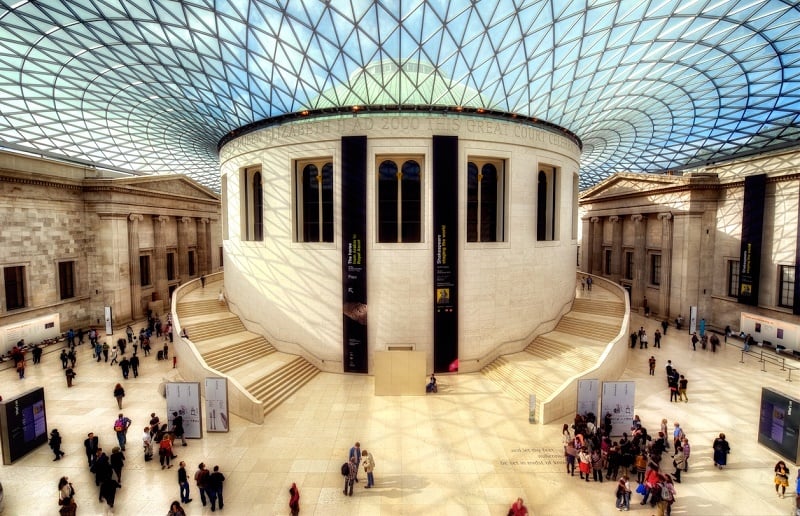
Photo: Jim Nix / Nomadic Pursuits via VisualHunt / CC BY-NC-SA
Museum free entry policy debated at Parliamentary inquiry
MPs have heard from an academic in favour of introducing national museum entrance fees, but been warned by Sir Neil MacGregor to “meddle with great caution”.
Opposing views on whether Britain’s national museums and galleries should introduce entrance fees have been presented to the Parliamentary ‘Countries of Culture’ inquiry.
MPs on the Culture Media and Sport Select Committee have been asking leading figures in the arts for their opinion on the policy, despite a commitment to continue free entry having featured in the Conservative manifesto last year.
The Committee, which is considering the imbalance in funding between London and the regions, has heard evidence from figures including academic Dr Lisanne Gibson, Chair of Arts Council England Sir Peter Bazalgette and former Director of the British Museum Sir Neil MacGregor.
Although MacGregor warned the Committee to “meddle with great caution”, Dr Gibson of the University of Leicester came out in support of introducing entrance fees.
“Why do we not do what most other countries do with equivalent types of national museum institutions in capital cities, where we charge an entrance fee, or at least an entrance fee to international tourists,” she asked.
“That money could then be used to fund cultural activities, cultural participation in the regions.”
She also voiced support for a London ‘tourist tax’, such as a hotel bed taxed, the proceeds of which could be directed to the regions.
Sir Peter Bazagette made it clear that he was not opposed to museums charging entrance fees, but that different museums require different policies.
When asked about introducing entrance fees just for tourists, he said: “It could be that is a solution in an area, but you would need tourists for it to work, and some areas do not have tourist economies, so it would not be appropriate.”
He said preserving free entry but charging for special exhibitions was another policy that many museums were adopting, but emphasised the need for “a very strong access policy” when charges were introduced.
Sir Neil MacGregor was more reticent on the issue. He described Britain’s free access policy as “a British tradition of which we should be very proud”.
He said the policy was built on an ideal of public education. “It is a uniquely British approach to the fact that you must allow your citizens to inform themselves before they can fully be citizens.”
He pointed out that most major collections are formed of objects from all over the world. “The fact that they are absolutely free of charge to everybody and that they are not held for the economic benefit of the UK is a critically important element in their history, as well as in their present use,” he said.
He also warned that introducing entrance fees was likely to cause a drop in visitor numbers.
The policy of free access to Britain’s national museums and galleries was introduced by Labour in 2001 and led to visitor numbers rising by 150% at formerly charging DCMS-sponsored museums over the next ten years.
Analysis by AP last year suggested that a growth in visitor numbers to England’s DCMS-funded museums and galleries was largely down to tourists: international visitor numbers grew by almost 40% between 2008/9 and 2013/14 while UK visitor numbers increased by just 3%. In 2013/14, 43% of visitors came from overseas.
Join the Discussion
You must be logged in to post a comment.